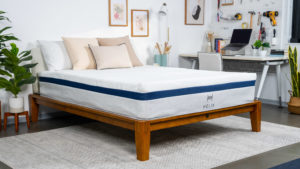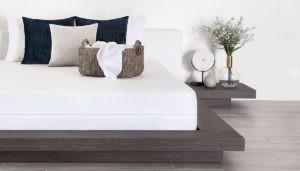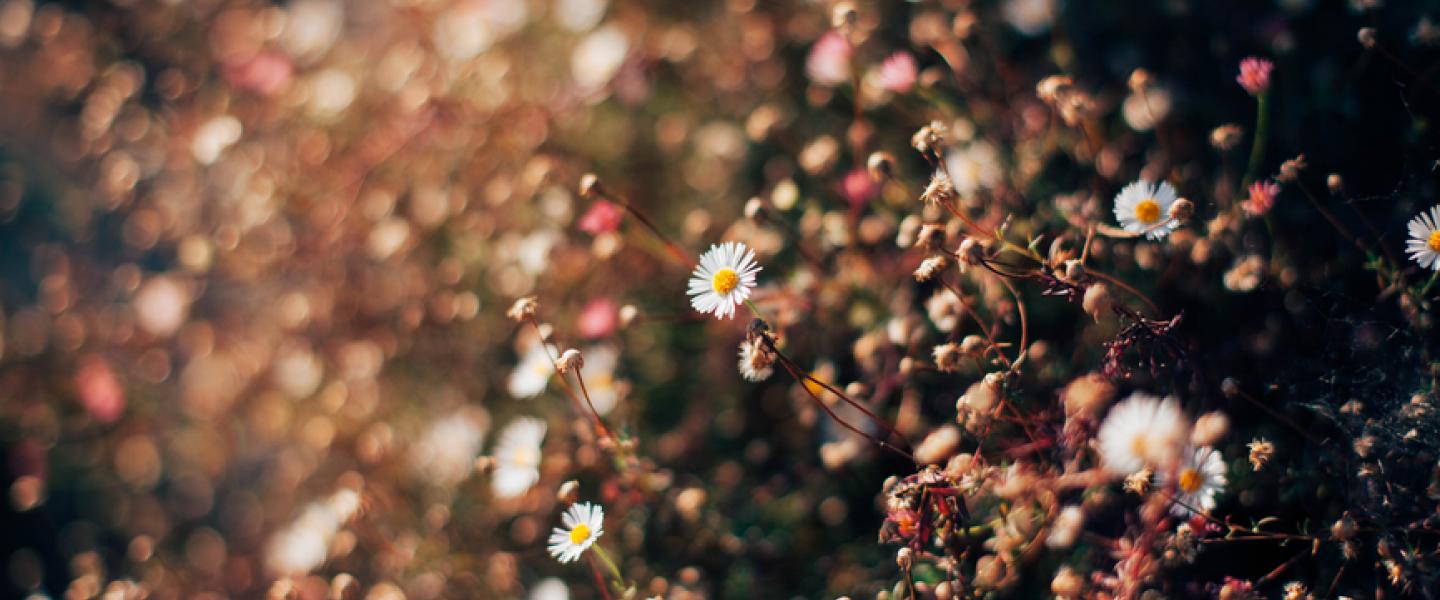Allergies and Sleep
Have you ever woken up with a stuffy nose or experienced sneezing in your sleep? Whether they’re seasonal or year-round, allergies aren’t fun.
Up to 40 percent of Americans suffer from allergic rhinitis (allergies), with symptoms including sneezing, itchy or runny nose, and watery eyes — and for many allergy sufferers, poor sleep as well. Individuals with allergies are more than twice as likely to have insomnia than those without allergies.
How Do Allergies Affect Sleep?
Allergies can affect all aspects of sleep. Individuals with allergic rhinitis are significantly more likely to suffer from sleep issues, including:
- Insomnia
- Trouble falling asleep
- Trouble staying asleep
- Increased snoring
- Increased risk for sleep apnea
- Poor sleep efficiency
- Short sleep
During the day, their problems don’t end. They’re more likely to have trouble waking up, experience daytime fatigue, and have morning headaches and sinus pain.
There also appears to be a correlation between the severity of a person’s allergies and the severity of their sleep problems. In other words, the worse their allergy symptoms are, the worse their sleep is.
For some people with allergies, difficulty sleeping may develop into more serious sleep disturbances, such as bedwetting, insomnia, restless sleep, snoring, obstructive sleep apnea (OSA), and other forms of sleep-disordered breathing. The connection between allergies causing or worsening sleep apnea is of particular concern because we know that OSA can lead to difficulty losing weight , high blood pressure, cardiovascular disease , and death .

Tips to Sleep Better With Allergies
Sleeping with allergies can be tough, but it is possible. Here are seven tips to cope with allergies and get better sleep.
Use an Air Purifier.
Air purifiers can help improve sleep for people with and without allergies. They help clear your bedroom air of common household allergens like mold, dust mites, pet dander, and even pollen brought in from outside.
Close Your Doors and Windows.
If you leave your windows open during the day, you’re inviting allergens into your home. Closed windows and doors, on the other hand, can do a lot to keep allergens outside and away from your bedroom.
Keep Your Furniture as Dust-Free as Possible
Most people are surprised by the amount of debris and dust collected in nooks and crannies in the room. Avoid heavy drapes and upholstered furniture in the bedroom. Avoid floor-to-floor carpet, if possible. Use tightly-woven fabric for your sheets and pillowcase to prevent trapping of dust. Avoid “dust collectors”, such as stuffed animals, fake flowers, and old books in the bedroom.
Keep Pets Out of Your Bedroom.
Pet hair and dander are two common allergens that impact sleep, so sleeping in a separate room from your pet may help relieve your allergies at night. Give them a comfy bed outside your bedroom and pet them goodnight. Just make sure to wash your hands afterward!
Change Up Your Laundry Routine.
After spending time outside, especially during high pollen count days, take your clothes off when you come inside the house and put them directly in the laundry room. Never hang your clothes outside to dry. Use a dryer instead, if possible.
Shower Before Bed.
Showering before bed helps wash the pollen away. Make showers a part of your bedtime routine, and you’ll always be clean before bed.
Take Allergy Medication at Night.
If you currently take your allergy medication in the morning, consider changing it to nighttime. Consult your doctor first, though. This ensures the dose of medication is still strong in your system when you go to bed, instead of wearing off in the middle of the night.
Talk to Your Doctor.
Speaking of your doctor, they can discuss some treatment options with you based on the type of allergies you have. There are over-the-counter medications, prescription medications, and lifestyle changes that can provide relief.

Still have questions? Ask our community!
Join our Sleep Care Community — a trusted hub of sleep health professionals, product specialists, and people just like you. Whether you need expert sleep advice for your insomnia or you’re searching for the perfect mattress, we’ve got you covered. Get personalized guidance from the experts who know sleep best.
References
6 Sources
-
Leger D, Bonnefoy B, Pigearias B, de La Giclais B, Chartier A. Poor sleep is highly associated with house dust mite allergic rhinitis in adults and children. Allergy Asthma Clin Immunol. 2017 Aug 16;13:36. doi: 10.1186/s13223-017-0208-7. PMID: 28814959; PMCID: PMC5558653.
https://www.ncbi.nlm.nih.gov/pmc/articles/PMC5558653/ -
Liu, J., Zhang, X., Zhao, Y., & Wang, Y. (2020). The association between allergic rhinitis and sleep: A systematic review and meta-analysis of observational studies. PloS one, 15(2), e0228533.
https://pubmed.ncbi.nlm.nih.gov/32053609/ -
Lyytikäinen P, Lallukka T, Lahelma E, Rahkonen O. Sleep problems and major weight gain: a follow-up study. Int J Obes (Lond). 2011 Jan;35(1):109-14.
https://pubmed.ncbi.nlm.nih.gov/20531352/ -
Jean-Louis, G., Zizi, F., Clark, L. T., Brown, C. D., & McFarlane, S. I. (2008). Obstructive sleep apnea and cardiovascular disease: role of the metabolic syndrome and its components. Journal of clinical sleep medicine : JCSM : official publication of the American Academy of Sleep Medicine, 4(3), 261–272.
https://www.ncbi.nlm.nih.gov/pmc/articles/PMC2546461/ -
Rössner, S., Lagerstrand, L., Persson, H. E., & Sachs, C. (1991). The sleep apnoea syndrome in obesity: risk of sudden death. Journal of internal medicine, 230(2), 135–141.
https://pubmed.ncbi.nlm.nih.gov/1865165/ -
Sublett J. L. (2011). Effectiveness of air filters and air cleaners in allergic respiratory diseases: a review of the recent literature. Current allergy and asthma reports, 11(5), 395–402.
https://pubmed.ncbi.nlm.nih.gov/21773748/





